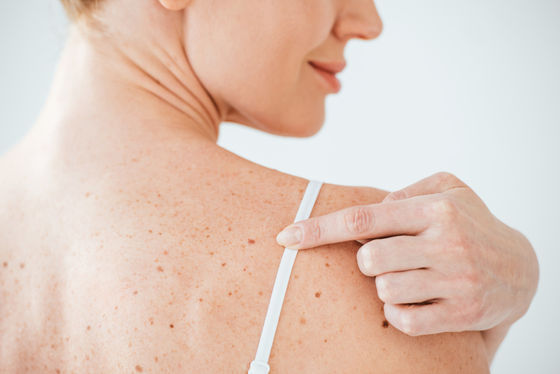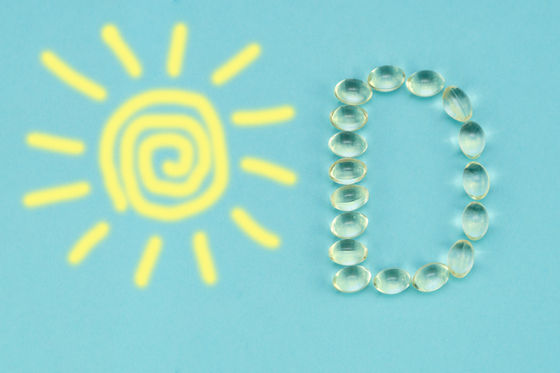Research shows that sunbathing can extend your lifespan, but is it possible to enjoy the benefits of sunbathing while avoiding the risk of skin cancer and sunburn?

Many people have heard that ``ultraviolet rays from the sun damage cell genes and cause skin cancer,'' and have tried to avoid sunlight as much as possible. Although it is true that sunbathing carries a risk of skin cancer, multiple studies have shown that overall, the benefits outweigh the drawbacks and may extend your lifespan.
Let it shine: the unexpected benefits of sun exposure on skin | The sun | The Guardian
The dangers of sunlight became known through experiments conducted by a British researcher named George Findlay in the late 1920s. The experiment, in which mice were exposed to regular ultraviolet light, developed tumors in their skin, suggesting that sunlight may be linked to an increased risk of skin cancer. Subsequent research has led to the elucidation of the mechanism by which ultraviolet rays induce DNA mutations in skin cells, which eventually develop into skin cancer.

Despite these harmful effects, research has shown that people who get more sunlight live longer lives. In 2014, Pere Lindqvist of the Department of Obstetrics and Gynecology at Clintech, Karolinska University Hospital in Sweden, et al.
Women who received more sunlight lived longer lives because they had a lower risk of developing diseases unrelated to cancer, such as cardiovascular disease, type 2 diabetes, autoimmune diseases, and chronic lung disease. It is believed that
A British study, specifically targeting white people, found similar results. In a study published in July 2023, Richard Weller of the University of Edinburgh and his colleagues tracked the health status of 376,729 participants of white ancestry from the UK Biobank for an average of 13 years. I analyzed it.
The analysis found that people who actively sunbathed were 14% less likely to die from any cause and 19% less likely to die from cardiovascular disease than those who avoided sunbathing. As a result, those who actively sunbathed lived about 50 days longer on average. We also found that people living in the south of the UK lived about 16 days longer than people living 300km north, meaning that people in areas with longer hours of sunlight lived longer.
'You might think it's only 50 days, but at a population level, the difference is huge,' Weller said. 'Basically, when you adjust for all the confounding factors, everything except sunlight. The more sunlight people received, the longer they lived.'

The study also showed that people who actively sunbath also had a 14% lower risk of dying from cancer, including skin cancer. Although this result seems to contradict the fact that sunlight poses a skin cancer risk, Weller says, ``In people diagnosed with
Vitamin D is synthesized when ultraviolet B (UV-B) contained in sunlight reacts with 7-dehydrocholesterol in skin tissue. The body produces vitamin D, which is used to balance calcium and phosphorous, which are essential for bone and muscle health, and helps immune cells fight off harmful bacteria and promote wound repair. It is also used for In addition, because vitamin D receptors are also found in the heart and brain, it is widely believed that cardiovascular diseases, infectious diseases, and cancer may be related to vitamin D deficiency. .
If vitamin D deficiency is the problem, it seems like there's no need to risk skin cancer by sunbathing. However, Prue Hart, who studies the relationship between UV rays and the immune system at Australia's Telethon Kids Research Institute, says the results of large-scale studies examining the effects of vitamin D supplements are mixed and contradictory. It is said that there are many. For this reason, some researchers seem to question whether they are looking at vitamin D from the wrong perspective.

It is also possible that the effects of sunlight on the human body are not limited to vitamin D. Excessive sunburn increases the risk of skin cancer in the first place because, in addition to damaging DNA, the activity of immune cells, which are responsible for detecting damaged cells and destroying them before they become cancerous, is the reason why excessive sunburn increases the risk of skin cancer. Because it weakens.
Weakening your immune system may seem like a whole bunch of bad things, but when your immune system is overactive, you increase the risk of
For example, research into multiple sclerosis (MS) , which occurs when the immune system mistakenly attacks the brain and nerves, has found a link between the amount of time spent in sunlight and a lower risk of developing the disease. it was done. Research has shown that 1 in 10 people may develop an autoimmune disease, and autoimmune diseases are becoming a health problem for modern people, along with cancer.
Based on this knowledge, Dr. Hart is conducting research in which early stage MS patients are exposed to UV-B to halt or slow the progression of symptoms. A pilot study involving 20 people found that seven out of 10 people with early-stage MS who received phototherapy developed symptoms, compared with all 10 in the untreated group. The results are out. Subsequent analysis also found that people who received phototherapy had significant differences in the composition of immune cells in their blood, particularly the B cells that produce antibodies.
In addition, Dr. Weller of the University of Edinburgh previously reported that human skin stores large amounts of nitric oxide, which has a vasodilatory effect, and is activated when exposed to ultraviolet A (UV-A) light. Experiments have confirmed that blood pressure decreases, albeit temporarily. Research has also shown that when men are exposed to UV-B, it triggers damage to the DNA in their skin and stimulates the secretion of the hormone ghrelin . Ghrelin is a hormone that regulates appetite, but it also has the effect of suppressing inflammation and increases in blood pressure, and it has been pointed out that this may be the reason why sunbathing reduces the risk of cardiovascular disease.

As evidence mounts of the beneficial aspects of sun exposure, there are increasing calls for a review of public health guidelines for safe sunbathing.
The effects of ultraviolet rays vary depending on individual constitution and region, so it is difficult to uniformly determine the optimal time and length of sunbathing, but ``the amount of sunlight necessary to maintain health is much less than the amount that causes sunburn.'' This is something that many experts agree on. This means that you can still get the benefits of sun exposure even if you don't get enough sunlight to get a sunburn.
Also, according to Michelle Baker, CEO of the Melanoma Foundation, a charity that promotes sun protection when outdoors, using sunscreen will not cause a vitamin D deficiency. This is because no matter how much sunscreen you use, some of the UV rays still reach your skin.
Walayat Hussein, from the British Association of Dermatologists, said: 'Excessive tanning increases the risk of skin cancer and is recommended to be avoided. There is no need to run away from the sun all year round, but when exposed to You can protect yourself by taking a few steps: ``Use sunscreen,'' ``Protect your skin with clothing,'' and ``Stay in the shade during times when the UV index is high.'' did.
Related Posts:
in Science, Posted by log1l_ks







